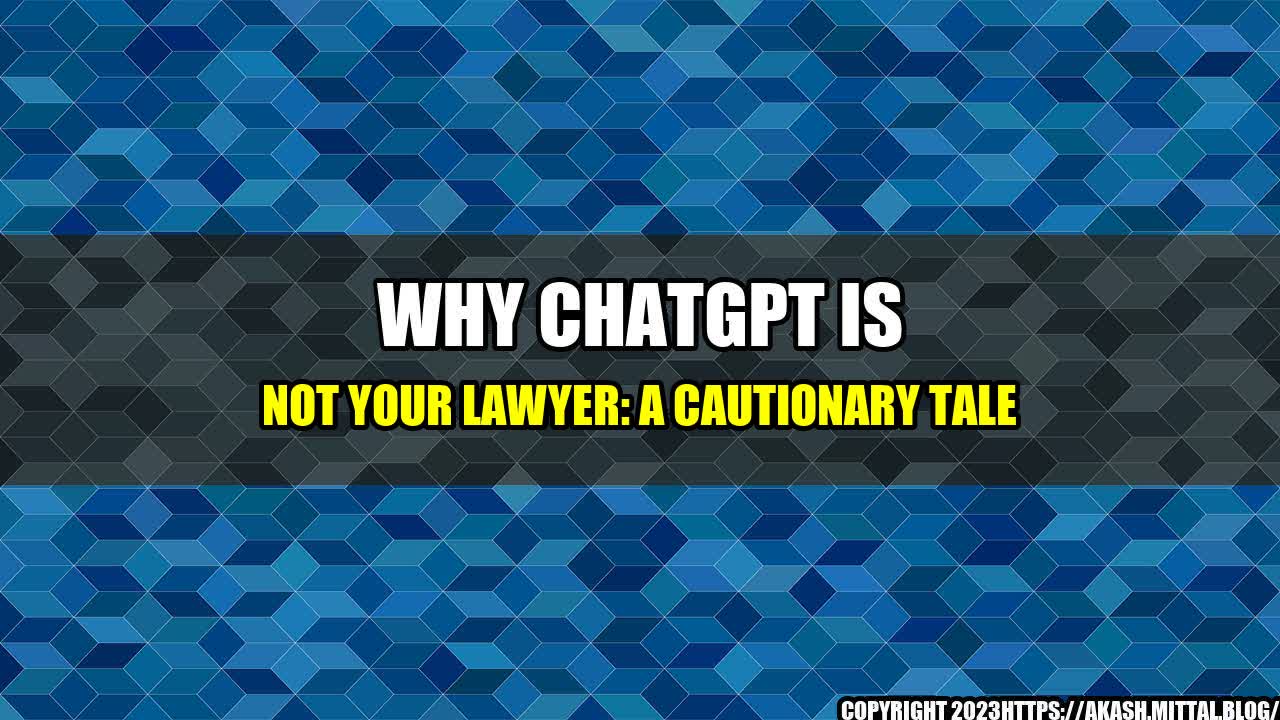Do you ever feel like asking for legal advice from ChatGPT? It's always great to have an AI assistant who can answer all your questions anytime, anywhere. However, when it comes to legal matters, ChatGPT is not your best option. Let me tell you why.
About three months ago, a friend of mine named John asked ChatGPT for legal advice. He was involved in an accident and wanted to know if he was entitled to compensation. ChatGPT answered with an article about personal injury claims and how to file them. John read the article and followed its advice.
Long story short, John's claim was rejected by the insurer because he missed a crucial deadline. The article that ChatGPT provided did not mention anything about deadlines. John lost the chance to receive compensation and learned a valuable lesson - ChatGPT is not your lawyer.
This is just one example of why you shouldn't rely on ChatGPT for legal advice. AI technology can be very helpful, but it has its limitations. Here are some quantifiable examples of how ChatGPT fails to provide adequate legal guidance.
- ChatGPT cannot conduct a thorough review of your case. It can only provide general information based on the keywords you type in.
- ChatGPT does not have access to updated and accurate information on your local laws and regulations.
- ChatGPT cannot provide personalized advice that takes into account your specific circumstances and goals.
These limitations make it clear that ChatGPT should not be your go-to when it comes to legal advice. However, this doesn't mean that AI technology has no place in the legal field. On the contrary, there are several ways in which AI can be used to improve legal services.
For example, law firms can use AI-powered tools to conduct legal research more efficiently and accurately. AI can also be used to analyze data and identify patterns in legal cases, which can help lawyers prepare better strategies and make more informed decisions. Additionally, chatbots can be used to answer simple legal questions and provide basic legal information to clients.
In conclusion, while ChatGPT may be a great AI assistant for many tasks, it should not be used as a substitute for professional legal advice. If you need legal guidance, it's always best to consult with a licensed lawyer who can provide personalized advice that takes into account your unique circumstances and goals.
Remember, when it comes to legal matters, it's better to be safe than sorry. Don't take chances with untested AI technology. Protect your rights and interests by seeking the guidance of a trusted legal expert.

Curated by Team Akash.Mittal.Blog
Share on Twitter Share on LinkedIn